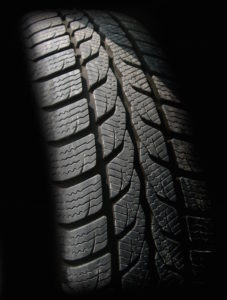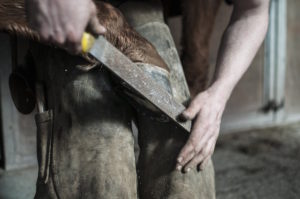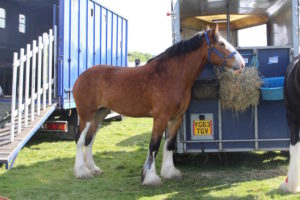VIEW OUR COMMERCIAL
As seen on TV

CHOOSE THE EASY OPTION FOR YOUR INSURANCE, WE’LL GET YOU A QUOTE IN NO TIME AT ALL.
LATEST NEWS
Most of us have heard that awful scratching sound of metal against a kerb and know our pristine alloys are no more. It can happen all too easily driving round the ramp in the multi-storey car park or when reverse parking in the street. If your wheels are your pride and joy, you’ll want to get them fixed. Or what about that sinking feeling when a light comes on to say you’ve got a flat. Depending on your vehicle, the replacement costs can run into the ££hundreds. To save on unexpected bills and keep your car’s wheels and tyres in safe and great looking condition, you could take out insurance. We explore whether separate tyre and alloy insurance are worth it to help you to decide.
Firstly, what is tyre and alloy insurance?
Tyre and alloy insurance is a standalone policy that is separate from your standard vehicle insurance. If your tyres or wheels are damaged, you can claim against this policy to get them fixed.
Why have separate insurance?
There are several reasons to take out separate insurance for your wheels.
- Replacing damaged tyres or wheels is not normally included in your standard vehicle insurance. That means you’ll need to pay for replacements yourself unless you have it specified or the wheel is damaged as part of a bigger accident and you have comprehensive insurance.
- Claiming on your main vehicle insurance means paying the excess. Depending on how high your excess is, it might make the claim unaffordable.
- If you make a claim on your main vehicle insurance it is likely to mean higher premiums in the future.
- The state of our roads is worse than ever and hitting a pothole can severely damage tyres. The chance of picking up a puncture or two is greater than ever.
Things to think about
If you don’t really care if your alloys get scratched and you can easily afford to replace tyres if they get a puncture, you probably don’t need tyre and alloy insurance.
However, it is worth considering if:
- It is important for you to keep your car looking in pristine condition.
- Your car has run-flat tyres and you would find it tricky to cover the cost of replacing these quickly.
- Your car has other tyres that you would find tricky to cover the cost of replacing quickly.
- You live or park your car in an area where malicious damage to vehicles, for example, tyre slashing, may occur.
- You drive on roads with potholes, which can cause significant damage.
Is tyre and alloy insurance worth it?
Like all non-compulsory insurance, you really need to weigh up if it’s worth it to you. Nobody knows what is around the corner. You could enjoy trouble-free motoring, with no punctures or scratches on your alloys. Or you could be unlucky and find yourself replacing tyres or fixing wheels several times a year due to punctures and scrapes.
Benefits:
- If you do need to repair or change your wheel or tyre during the cover period, having insurance will save you cash in the long run.
- If you plan to sell your vehicle in the future, having alloy wheels in pristine condition will help you to get the best possible price.
What isn’t included?
Replacement tyres needed due to gradual wear and tear are not normally covered by tyre and alloy insurance.
How many claims can I make?
The number of claims you can make each year will vary depending on the policy. Normally, you can make up to three claims a year.
Things to check
Before you buy, check:
- Will you need to pay an excess if you make a claim?
- Is there a limit to the number of claims you can make in a year?
- Is there a limit to making your first claim? For example, with some policies, you may be excluded from making a claim within the first 30 days of the policy.
- Is there a limit on the cost of repairing alloys or tyres? If so, is it sufficient?
- Can you choose where you go for repair?
- Can alloy wheel repairs be carried out at your home or work for your convenience?
- Is there a limit on the age of your car or the number of miles covered?
- Are diamond-cut wheels covered for repair and replacement?
- If your alloys are not covered for replacement but cannot be repaired, will the insurance pay out a contribution towards the replacement cost?
What cars have run-flat tyres?
Run-flat tyres have a reinforced sidewall so they don’t collapse when you get a puncture. They are a great safety feature as they eliminate the chance of you having a catastrophic blow-out on the road. They’re also a handy feature in vehicles where space is at a premium or to save on weight as they mean you don’t need to have a spare in the boot. However, when you get a puncture or they perish, you must replace them within 50 miles for safety. They normally can’t ever be repaired, so you’ll have to buy a new tyre. And they can cost a lot more than regular tyres.
Some of the common vehicles on the road with run-flat tyres include:
- Mini
- BMW
- Mercedes
- Audi
Remember
- Diamond cut wheels can only be repaired a couple of times. If the scratch is deep, you may only be able to successfully repair them one before needing a new wheel.
Where can I buy cheap tyre and alloy insurance?
At Easy2Insure we specialise in helping our customers to get the exact insurance they need at the very best price. You can call our friendly team on 0800 9179522 or get a quote. As part of the UK’s largest independent insurance brokers, we can use our buying power to negotiate a great value deal. We’ll use our knowledge to get the right level of cover for you. And we’ll make sure there are no surprises in the small print. We can save you money on your alloy and tyre insurance compared to buying it directly from your dealer, so get in touch now.
Whether you’re taking your horse to the vet or a show, you’ll need a horsebox to get there. You can choose between towing a trailer behind your vehicle or buying a motorised horsebox. Depending on what you have, you’ll discover various regulations apply regarding licences and insurance. With different rules depending on the weight and type of your vehicle and when you passed your driving test, it can seem complicated. Use our guide to find out everything you need to know; from what driving licence you need to if you need horsebox insurance.
Is horsebox insurance required by law? Towing a horsebox behind a vehicle
If you tow a horsebox behind your car or van, you don’t have to have separate horsebox insurance by law. You do have to have valid insurance for the towing vehicle though. Also, be aware that you are normally only covered third party for trailers with your standard vehicle insurance. That means that if you have an accident, the other party’s costs will be covered. However, you will not receive any payment if your horsebox, or the kit inside, is damaged or written off.
For more peace of mind, you need dedicated, fully comprehensive horsebox insurance. This can be tailored to your specific needs to include valuables transported inside the box, such as tack or clothing, as well as covering the trailer itself. Cover for driving in Europe can also be included.
- Bear in mind that your horse is not covered whilst it is travelling under horsebox insurance. For that, you’ll need separate equine insurance.
- Double-check your policy to see if you are covered when driving off-road, for example on a showground. It’s also worth checking if tack and other contents are covered against theft when you’re parked at a show.
Is horsebox insurance required by law? Driving a motorised horsebox
If you drive a motorised horsebox, for example, a vehicle that has the horse or living quarters immediately behind the cab, you need specialist vehicle insurance. If you don’t have the right cover for the size and weight of horsebox, you will be breaking the law. You can be fined and receive penalty points on your driving licence.
- Remember, your horsebox must be insured even if you don’t intend to drive it and it is just parked by your stable. The only time you don’t need insurance is if the horsebox has been registered as off the road (SORN).
- You must hold a minimum of third party insurance for your motorised horsebox. Remember, this only covers the other party if there is an accident. Choose third party fire and theft if you want to be compensated if your horsebox is stolen or damaged by fire. If you want to be covered if your horsebox is damaged in an accident as well, you’ll need to select comprehensive cover.
Is breakdown insurance worth it?
The thought of breaking down in our car is worrying enough. If you’ve got your precious horse at the back, it really can be a nightmare. With horsebox breakdown cover you can rest assured you can quickly call for help from professionals. If your car or box can’t be fixed at the roadside, you’ll have peace of mind you and your horse can be transported to somewhere safe. And you’ll know that there will be no unexpected bill to worry about.
Buying your breakdown cover with your horsebox insurance can mean bundle-deal savings. Speak to your broker to find out more.
Your other legal responsibilities when you tow a horsebox
It’s essential to find out if you can or cannot legally tow your horsebox. If you do accidentally tow a horsebox without the right type of driving licence, you will be breaking the law and your insurance will be invalid. That can leave you with fines and penalty points if you are caught. And if you are unlucky enough to have an accident, it will leave you hefty bills to pay.
Current legislation: driving licence requirements
The current legislation on what you can tow is based on when you passed your test and what you want to tow.
- If you passed your driving test before the 1st January 1997 then you can drive a vehicle and trailer combination with a combined weight of up to 8.25 tonnes. Your driver’s licence will cover this, without any need for a special operator’s licence.
- If you passed your test on or after 1st January 1997, you can drive a vehicle with a weight of up to 3500kg and attach a trailer of up to 750kg, without a special licence provision. You can tow a trailer over 750kg as long as your vehicle and trailer combined do not weigh over 3,500kg.
However, if you are driving a combination that exceeds those weight limits, you are required to apply for a Category B + E entitlement. This will mean you have to take an additional driving test.
What is an operator’s licence and do I need one?
If you are only transporting your horse as part of your hobby, you will not need a special operator licence. Be aware that you may need an operator’s licence if your activity could be considered part of a business.
For example:
- If you are transporting horses for reward, you’ll need an operator’s licence. For example, you are taking someone else’s horses to a show and they are paying you for the service. You’ll need an operator’s licence even if it is just for one day.
- If your equestrian activity is more than a hobby. For example, if prize money and sponsorship means your income from equestrian activities is higher than your outgoings.
It’s useful to remember that if you pull your trailer using a ‘dual-purpose’ vehicle, such as a 4×4 that can carry goods and passengers, then this is exempt from operator licensing.
Sticking to the speed limits with your horsebox
If you break the speed limit in your horsebox, you could face fines and penalty points on your licence. Here’s what you need to know:
- If you are towing a horsebox behind a vehicle with a combined weight up to 7.5 tonnes the speed limit on single carriageways is 50mph, on dual carriageways is 60mph and on motorways is 60mph.
- When you are driving a horsebox with no trailer up to 7.5 tonnes, the speed limit on single carriageways is 50mph, on dual carriageways is 60mph and on motorways is 70mph.
- If you are driving a horsebox over 7.5 tonnes with or without a trailer, the speed limit on single carriageways is 40mph, on dual carriageways is 50mph and on motorways is 60mph.
Buy cheap horsebox insurance for peace of mind
It’s Easy2 find the right horsebox insurance at the best price at Easy2Insure. Call our helpful team on 0800 917 9522 or get a free quote.
This article was first published in April 2015. It has since been completely updated to give you the latest and best information.
Did you know that around a third of cars fail the annual MOT first time? For anyone who anxiously dreads the expense and inconvenience of a fail, it’s a fact that makes bleak reading.
Without your car on the road, you could find yourself unable to get to work or to see family and friends. But getting your car fixed to pass its MOT can be expensive. MOT Failure Insurance can buy you peace of mind that the financial cost of getting your car back on the road is covered. But do you really need it? We look at what can go wrong and what insurance covers so you can decide for yourself.
On average, we Brits spend over two and a half hours online on our smartphones every day. We use it to schedule our work or social calendar, tell us the time or keep in touch with family and friends. Indispensable for modern life, it’s bad enough when you run out of battery. So the thought of losing our phone, or it breaking, is enough to bring many of us out in a cold sweat.














